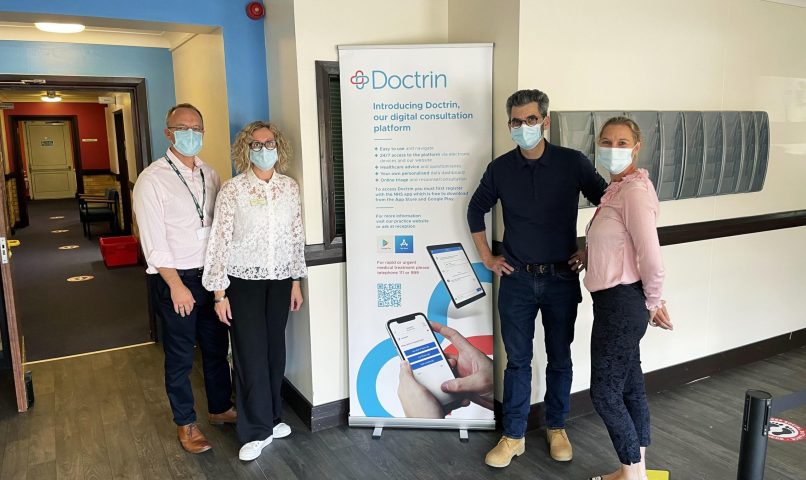
Doctrin’s response the NHS Elective Recovery Plan
What do we think the recently published NHS recovery Plan means for healthcare within the UK? Craig Oates, our Managing Director has shared his thoughts on the plan and how it can help improve patient care in healthcare services, particularly through the adoption of digital systems.
The NHS is dedicated to providing efficient and high quality care for all patients in the UK. However, the Covid-19 pandemic has resulted in huge elective care waiting lists as certain services were either cancelled or significantly reduced to accommodate increased hospital admissions. To reduce patient waiting times in the next few years, the NHS has unveiled a recovery plan which hopes to restore the efficiency of the system.
Our Managing Director in the UK, Craig Oates, has said: “While we welcome the focus on digital in the Elective Recovery Plan, many of the ambitions aren’t new, and in some cases have been discussed widely in healthcare for years. This includes plans to improve staff wellbeing through more enhanced digital tools, ensuring hospitals have a core level of digitisation and using digital tools and enablers to deliver care focused on the patient’s individual journey across care settings.”
The emphasis on raising digital maturity with all sectors of the NHS has been prevalent for a while but the pandemic seems to have accelerated this sentiment. The key role of digital consultations and remote care has been recognised and the space for a platform like Doctrin within healthcare is significant.
Craig Oates elaborates: “As an online care navigation and consultation platform, we have already seen our customers make great progress towards improving demand and capacity management. And giving both patients and clinicians more flexibility in their care has reduced pressure on services, as well as driving up access and care quality. With the right tools, combined with experienced change management support, the NHS can achieve a step-change in efficiency and improved overall staff experience, all while achieving a 90% patient satisfaction rate, as we have seen with our customer Lakeside Healthcare.”
He adds: “Digital services, such as care navigation, digital triage, and remote assessments, can also pave the way for systems to completely redesign pathways, by routing patient consultations to the most appropriate caregiver from the outset, accelerating access and the delivery of care to the patient. And this will be essential to the development and success of Integrated Care Systems.”
“While there is great work already being carried out with digital health tools, clearer targets on tech uptake are needed for healthcare organisations and integrated care systems to work towards; based on measures that clearly link digitisation to patient, clinical and health system outcomes. This will help embed a clear focus and drive high levels of digitisation that benefits patients, clinicians and the NHS. Improved staff wellbeing, retention and patient satisfaction will follow.”
Craig concluded: “We hope the ERP will be the driving force behind increasing the use of digital services across primary and secondary care and supporting the shift to integrated care systems. But for this to happen the journey to digital success needs to be more clearly aligned with the wider targets in the plan.”
Read the details of the Elective Recovery Plan at the link below:
Coronavirus » Delivery plan for tackling the COVID-19 backlog of elective care (england.nhs.uk)




